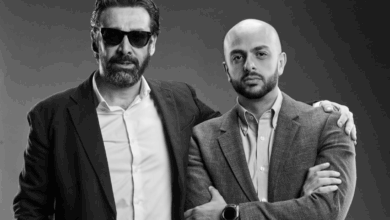
The long-awaited Egyptian film "Eshtibak" (Clash, 2016) grabbed the attention of audiences at the opening section of the Cannes Film Festival this year and with several good reviews in the international press.
The 98-minute film, written and directed by Egyptian filmmaker Mohamed Diab, depicts the political turbulence and uncertainity after the ouster of former president Mohamed Morsi in 2013, particularly the conflict between supporters of the Muslim Brotherhood and those backing the military.
The film was set entirely in the back of a police van, into which both Brotherhood and military supporters had been thrown in the wake of demonstrations following the overthrown of Morsi in July 2013.
The entire story takes place in a very limited space, no wider than 8 meters, with the director focusing on the dramatic dialogue between characters from divergent political and religious backgrounds. There are sad moments, comic moments and some violent erruptions, and viewers are kept informed of evolving events outside the van too.
Diab created the movie with the help of a talanted young team, including Egyptian actress Nelly Karim and the actors Hany Adel and Tarek Abdel Aziz. The project's producers were based in Egypt, France, Germany and UAE.

Courtessy of Cannes Film Festival 2016
Diab told Hollywood Reporter of the fast-paced political background to the project, which was both an inspiration and a challenge.
"Things were going so fast. An idea you had today would have been too old by tomorrow," Diab told the publication.
On his official Facebook account, Diab thanked the film’s crew for making the project a success.
"I have a mixed feeling of happiness and worry, which is similar to a father’s feeling when his daughter is getting married,” Diab said.
Diab also directed the independent movie "Cairo 678", which stirred controversy in 2010 for its treatment of sexual harassment in Egypt. The film follows the stories of three Egyptian women from different social backgrounds who decide to gain revenge on their sexual harassers.

Courtessy of Cannes Film Festival 2016
Variety Magazine published a review of Clash, saying, "It might strike some as crossing too often into hysteria, yet this is bravura filmmaking with a kick-in-the-gut message about chaos and cruelty (with some humanity)."
Meanwhile, Deborah Young reviewed the film in the Hollywood reporter, saying it doesn’t take sides, a fact that "raises it above a purely political discussion in favour of a sweeping criticism of prejudice and inhumanity."
Young added that the movie will be "remembered as one of the most telling depictions of modern Egypt yet filmed. The audience has the sensation of being a prisoner, too, caught unawares in a deadly squabble that grows in volume and intensity as the film goes on.”
Further praise came from movie industry website Firstshowing.net, which described the film in glowing terms.
"This is a seriously outstanding film that goes above and beyond the confines of the paddywagon. It's actually much more of a truck, as nearly 20 different people from both sides of the revolution are eventually thrown together into this giant metal box," reviewer Alex Billington wrote.
"I'm so glad I saw it, and I hope many others get a chance to see it as well," said Billington.




